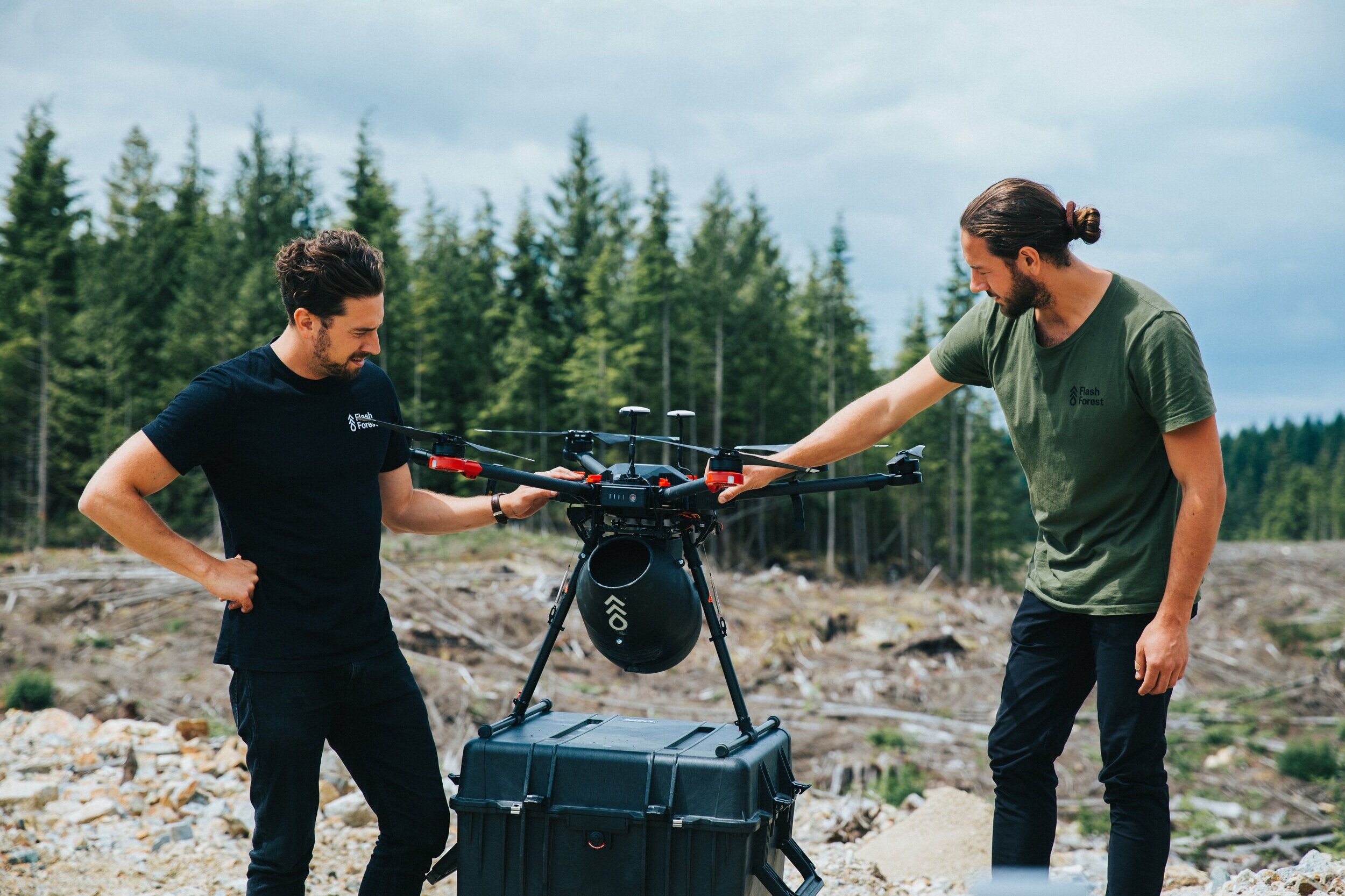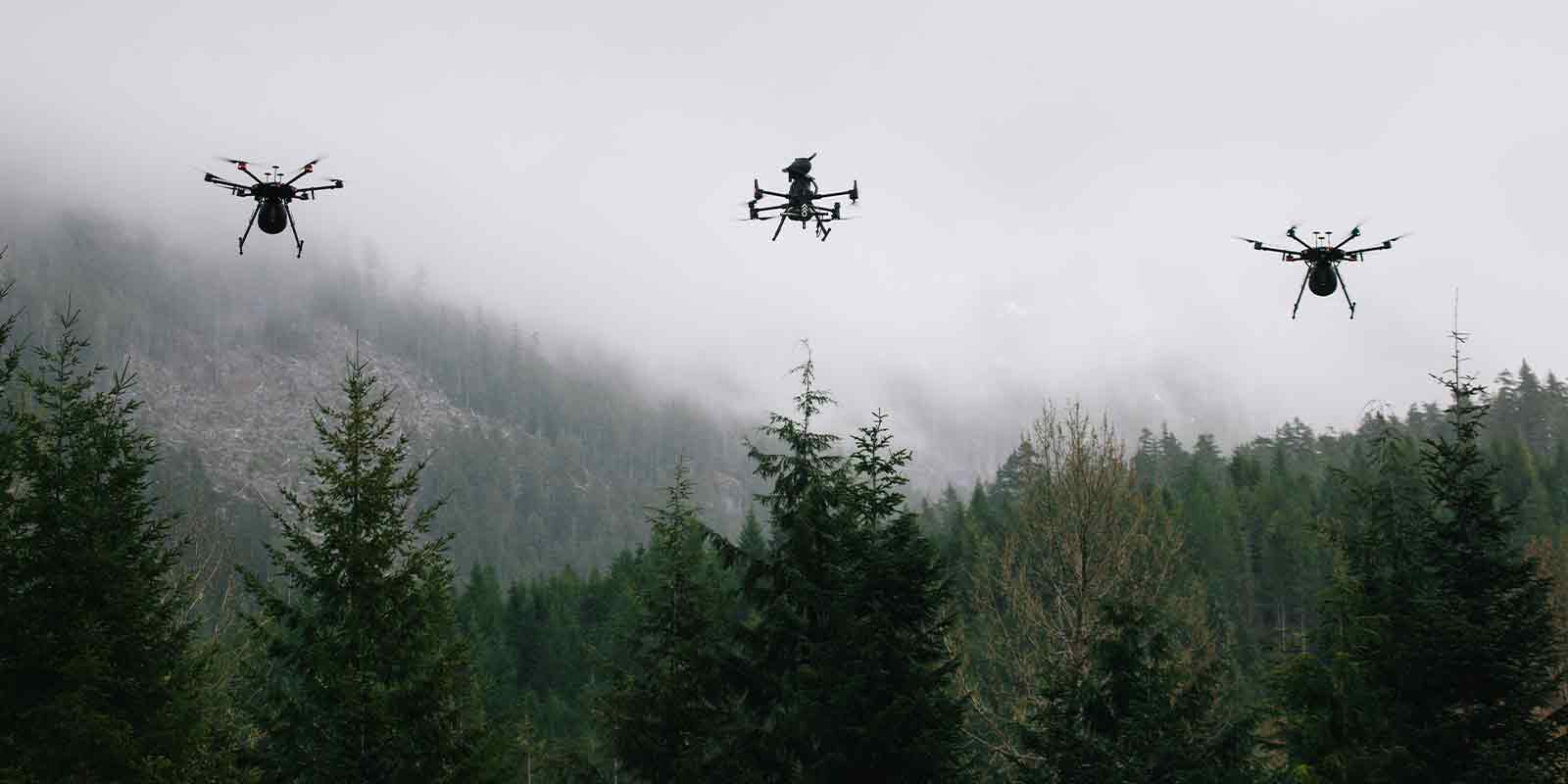ACCIONA Canada celebrates 20 years of sustainable infrastructure
The company planted thousands of trees in B.C. to mark the occasion.

Flash Forest uses drones and other tech to rapidly plant trees. – Flash Forest
ACCIONA Canada took to the skies to celebrate 20 years of sustainable infrastructure construction in Canada.
The company partnered with reforestation startup Flash Forest to plant 20,000 trees in B.C. using drones.
Planting from above
By leveraging drone, AI, GIS, and plant science technology, Flash Forest planted Douglas-fir, Hybrid Spruce, Western Larch and Lodgepole Pine in natural disaster-affected areas of the province.
“Having a direct positive impact on the environment we are building within is part and parcel with our Sustainability Master Plan 2025 (SMP 2025),” said Caroline Miwa, director of quality, health and safety, environmental and sustainability for ACCIONA North America. “ACCIONA is building some of B.C.’s largest transportation and clean energy projects, and so the project with Flash Forest in B.C. was intentional and meaningful.”
ACCIONA has published a five-year SMP since 2010, and it continues its roadmap for every business action worldwide.
“Our sustainability strategy has evolved and strengthened with each edition of the SMP,” said Miwa. “The 2015 edition was focused on measuring key performance Indicators, 2020 aimed to integrate and engage all stakeholders to align our sustainability approach, and 2025 goes a step further to not only minimize our footprint, but to make a positive impact.”
Miwa noted that “Planet Positive” is one of the four pillars underpinning SMP 2025 and supporting the regeneration of impacted forests in B.C. contributes to its global organizational goal of planting and monitoring the growth of one million trees within five years.
She also reflected on the ACCIONA’S long history of infrastructure.

20 years building Canadian infrastructure
“ACCIONA Infrastructure entered the Canadian market 20 years ago with one of the country’s most iconic hydraulic projects to-date, the Deep Lake Water Cooling System in Toronto,” she said. “The system draws cold water from the bed of Lake Ontario and uses it to cool downtown Toronto office towers – a sustainable alternative to conventional air cooling. The system is still in use today.”
Miwa said that since the start of the 2000s, ACCIONA has continued to deliver sustainable infrastructure solutions that have a positive impact on the community and environment, from the Saint John Safe Clean Drinking Water Project in New Brunswick which supplies 75 million liters of safe drinking water to the community every day, to the award-winning Royal Jubilee Hospital Patient Care Centre in Victoria, B.C., to the Broadway Subway Project currently under construction in Vancouver that will take cars off the road and reduce greenhouse gas emissions.
More than building projects
She added that ACCIONA’s sustainability efforts aren’t just limited to projects.
“It is important to remember that sustainability also encompasses community engagement,” said Miwa. “The ACCIONA joint venture delivering the Site C Clean Energy Project in Fort St. John, B.C. founded a Community Investment Program in 2016 that has since donated $375,000 to the North Peace Community Foundation in support of local charities. What’s more, 100 per cent of the donation was generated by our onsite recycling program.”
Miwa added that for ACCIONA, sustainability also means diversity, equity and inclusion (DE&I).
“‘People Centric’ is another pillar of our SMP 2025, under which ACCIONA aims to increase the percentage of women in middle and senior management positions every year – across all business lines globally,” she said. “In Canada, we are continuously improving the percentage of women in these positions and are proud that women make up almost 30 per cent of the North America leadership team.”
She added that safe, clean water has also been a major focus of ACCIONA’s efforts.
On one of its major transportation projects in B.C., tunnel water treatment plants are operated onsite to treat water resulting from tunnelling activities. Treated water is then discharged into sanitary sewage according to the specifications of the city of Vancouver.
Assisted by technology
Advances in technology are helping ACCIONA’s work on the “People Centric” pillar of the SMP 2025 by creating safer job sites and decreasing harmful emissions. They are using drones on site to assist with survey works, which eliminates hazards that our team might otherwise be exposed to. The company is working to electrify its fleet and is even investigating the use of hydro-treated vegetable oil bio-fuel across its operations.
Miwa explained that sustainability should be a concern for everyone in the industry.
“It is well known that the construction industry is a large contributor to greenhouse gas emissions,” she said. “As contractors, we are in a unique position to educate and influence sustainable decision-making both upstream to clients and peak bodies, and downstream to the supply chain. The industry – at every level – needs to move faster to execute infrastructure that will help restore social and environmental balance and regenerate the planet.”

